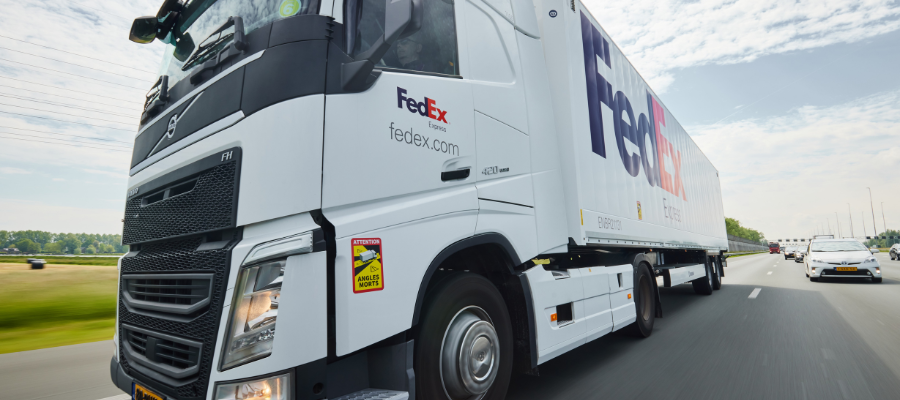🕒 Article read time: 2 minutes
The world’s largest express transportation company introduces renewable diesel

FedEx Express Europe, a Logistics UK member and subsidiary of FedEx Corp, has begun using renewable diesel to fuel a portion of its company-owned trucks in the Netherlands.
Made from organic matter or waste materials, the renewable fuel is synthetically made and is expected to cut emissions by as much as 90% per litre.
DRIVERS INSTRUCTED TO REFUEL WITH SYNTHETIC FUELS
Earlier this month, FedEx Express instructed the drivers of these heavyweight, long-distance vehicles to refuel using renewable diesel as an environmentally favourable alternative to fossil-fuel diesel. Trucks will use this fuel when they depart the recently reopened FedEx Express road-hub in Duiven, Netherlands.
The heavy end of the fleet is generally held as the most challenging to decarbonise, particularly when compared to parcel pick-up and delivery, where FedEx has already outlined its goal to transition to a fully electric fleet by 2040.
SYNTHETIC FUELS OFFERS A PROMISING INTERIM SOLUTION, SAYS FEDEX CHIEF
“Using synthetically-made diesel offers an interim solution with the promising ability to drive down ‘well-to-wheel’ carbon emissions by as much as 80-90% per litre,” said Vinay D’Souza, Senior Vice President Planning & Engineering, FedEx Express Europe, “It means that while technological solutions are still being developed to help the industry transition away from using fossil fuels altogether, we can already make decisions to influence and reduce our scope one carbon emissions in our linehaul truck network – those generated by our owned vehicles.”
INFRASTRUCTURE AS IMPORTANT AS FUEL IN REDUCING EMISSIONS
The ability to reduce emissions with this fuel in long-haul trunking rests not just on the supply of fuel, but also on the infrastructure. The use of this renewable diesel by FedEx Express is currently small in scale and limited to the Netherlands, where its use is encouraged.
Michelle Gardner, Deputy Director of Public Policy and decarbonisation lead at Logistics UK, said: “While the logistics industry in the UK has demonstrated its commitment to decarbonise at pace, solutions to reduce emissions at the heavy end of the road fleet are currently few and far between, as we wait for the technology to catch up with the government’s ambitious targets.
“This innovative use of synthetic fuels by our member FedEx Europe shows how low-carbon solutions can be used to make substantial reductions in road fleet emissions until further technological innovations are developed.”
*www.logistics.org.uk/environment
Published On: 24/11/2022 16:00:08

Comments Section
If you are a Logistics UK member login to add comments.